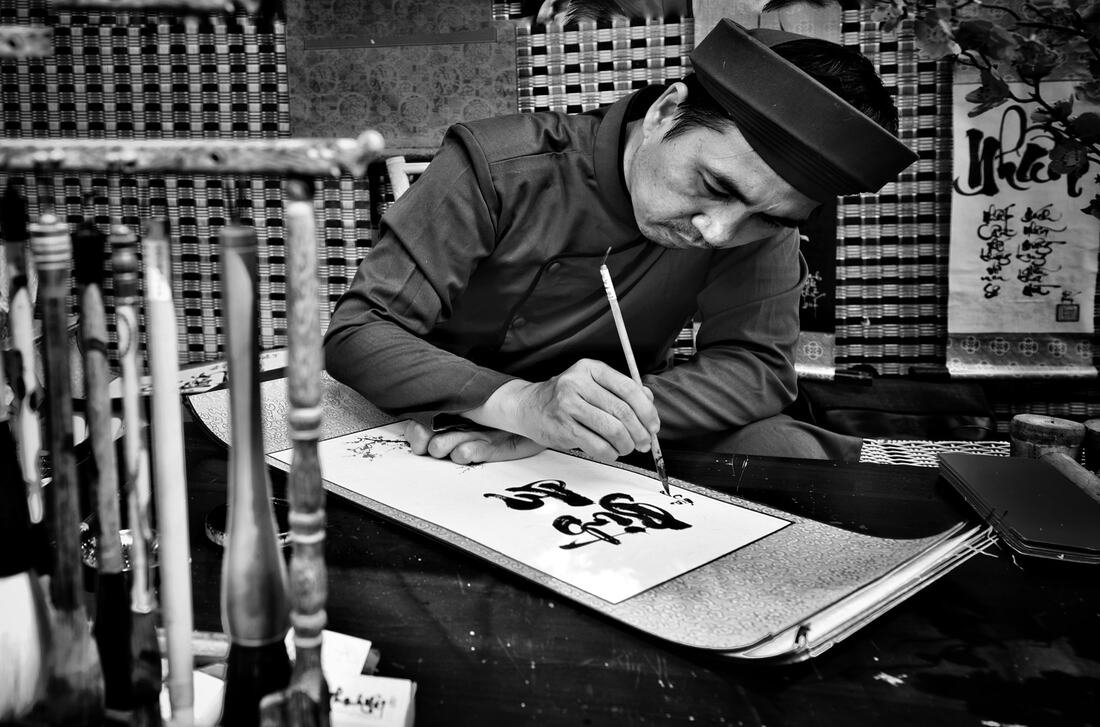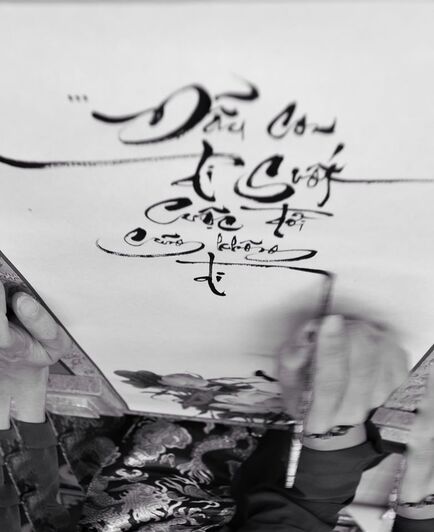How to Start a Calligraphy Business & TipsSolely operating a creative business is not an easy task. Being a one woman band forced me to wear many hats and gave me the experience of a modern entrepreneur. Let's look at what I learned from operating A Grateful Note in 2019.
1+year - 5 important lessonsLesson 1: Personality is as important as skills: I used to think that artist only works at home or in studio and stand behind their art works in jammy pants and coffee stained shirt but that is far from correct in the time of social medias. To sell artworks means artists have to sell themselves too. My greatest idol/ mentor/ best example in calligraphy business is Sylvia Wong. The first time I heard of Sylvia was on the radio of summer 2017; when she did an interview talking about The Just Married Jacket project. This jacket is well known in the Palz Wedding Zone (formerly known as Bunz Wedding Zone Toronto) prior the interview. I started to follow her on Instagram and got inspired by her captivating stories, her amazing artworks and her philosophy of supporting others in the lettering community. Her positive and encouraging personality lead me to enroll in one of her online course and it was one of the best investment I made in 2019 (more about this in lesson 5). Lesson 2: You cannot say yes to every inquiries: In the beginning of A Grateful Note, I made a mistake of saying YES to all inquiries. By saying yes to everything, I was seen as a “jack of all trade” and could not focus to master anything. I was jumping between graphic design projects to wedding mirrors to custom cake topper. It was fun to experiment everything but it was not fun to advertise yourself doing everything. Focusing on a niche allows you to work with projects you would want to be known for and have a solid portfolio for it. Your clients will be able to trust you with their projects and most likely will pay the price you ask because they know you are the master of your craft. Lesson 3: Contract is essential for creative business and deposit is required: Contract and deposit are important for freelance creative business as sword and amour to a warrior. I dismissed having a contract and required deposit in the beginning; in fear my clients would find it is intimidating; and might pass on my business. I put myself in situation where I did works with no deposit required and the client did not want to continue after the second revision because he found someone else who can do it cheaper. I had client who kept asking for additional details and revisions because there was no contract stating that they could only have 3 revisions and anything after that would cost them extra for my time. Today, my client would need a signed contract and deposit to book the dates in my calendar. If you don’t have a contract for your business, start on one right now! I cannot stress how important it is being able to help your productivity, reduce unnecessary stress help to set boundaries when dealing with difficult clients. Lesson 4: Charge your worth, then add tax: This lesson is the hardest to overcome for many creative business out there. The fear of asking for too much and prospects might lose interest is the reason for the stereotype of “starving artists”. We know our worth but with the mindset of competing with each other, we lowball ourselves in the hope we would attract more clients. I fall into that trap and it was not fun for business. Low pay adds stress and makes the work process not enjoyable . I quickly learn to adjust my pricing accordingly to industry standard when many calligraphers opened up about their pricing practices in 2019. In case of discounting, make that known to your clients so they won't think the discounted rate is your regular rate. Lesson 5: You gotta spend money to make money: When I started A Grateful Note, my target market are brides. As much I love wedding projects, they do not come very often and I need another stream of income. Because I followed Sylvia and Jodi on Instagram, I often wonder how they get gigs in high-end stores at the largest malls in the city. What did they do to get the lead on those I enrolled in “Luxury Lettering 101” course and learned the skills needed to target and attract high-paying, repeated clients. I spent my money to learn from masters in lettering business and I encourage you to think of learning as an investment. On top of the course, I also purchased many books from successful lettering artists to collect ideas and inspiration. Below are some of the books I would recommend to any lettering artist:
UPDATE 2024: After experience the pandemic from 2020-2023, I am updating my blog to up it up to date for my reader. Another tip I have for the entrepreneur who starts out their small creative businesses in 2024 is to consider using the advantage of search engine optimization (SEO) to reach out to your target audience. You can DIY and learn SEO strategies from free or paid resources to maintain your own SEO settings for your website. You can also reach out to a SEO consultant in your area to have your website settings audit professionally. It will help you to have a better outreach in the era of internet and social medias. As a beginner in business myself, I would love to learn more about creative business from other like-minded artists. Please leave a comment and don't forget to subscribe for more news and deals in 2020.
4 Comments
2/6/2021 09:10:46
Absolutely helpful article and really good guidance and suggestions for a beginner like me. Thanks again.
Reply
30/6/2021 03:49:37
The tips in this article will help the startups I work with to be more stable in the future. Healthy business development is the dream of many leaders of small companies. This article is interesting, I love it. Thank you for sharing this article.
Reply
11/12/2022 02:45:26
Totally in awe of this blog. So, beautifully written and so well explained. This is an era of startups. Great Going!! Great blog
Reply
Leave a Reply. |




